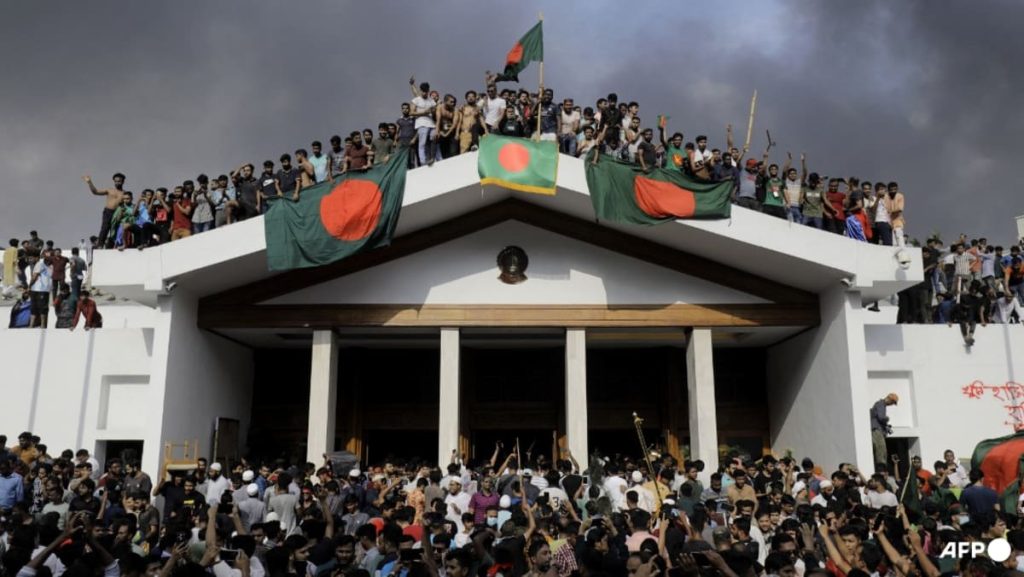Summarize this content to 2000 words in 6 paragraphs Bangladesh has been engulfed by violence since student protests last month against the quotas, which reserve some public sector jobs for veterans of Bangladesh’s 1971 independence war, seen as favouring allies of the ruling party.
The protests escalated into a campaign demanding the overthrow of Hasina, and were met by a violent crackdown in which about 250 people have been killed and thousands injured.
The country, once one of the fastest-growing economies in the world, has been plagued lately by slow economic growth, inflation and unemployment.
Hasina’s son Joy defended her record: “She has turned Bangladesh around. When she took over power it was considered a failing state. It was a poor country. Until today it was considered one of the rising tigers of Asia.”
Hasina had won a fourth straight term only in January this year in an election boycotted by the main opposition party, the Bangladesh Nationalist Party of her nemesis Begum Khaleda Zia.
Hasina had ruled since winning a decades-long power struggle with Zia in 2009. The two women each inherited political movements from slain rulers – in Hasina’s case, from her father Mujib; in Zia’s case, from her husband Ziaur Rahman, who took power after Mujib’s death and was himself assassinated in 1981.
“Hasina’s resignation proves the power of the people,” said Tarique Rahman, the exiled eldest son of the two Zias who now serves as acting chairman of the opposition party.
“Together, let’s rebuild Bangladesh into a democratic and developed nation, where the rights and freedoms of all people are protected,” he posted on X.


